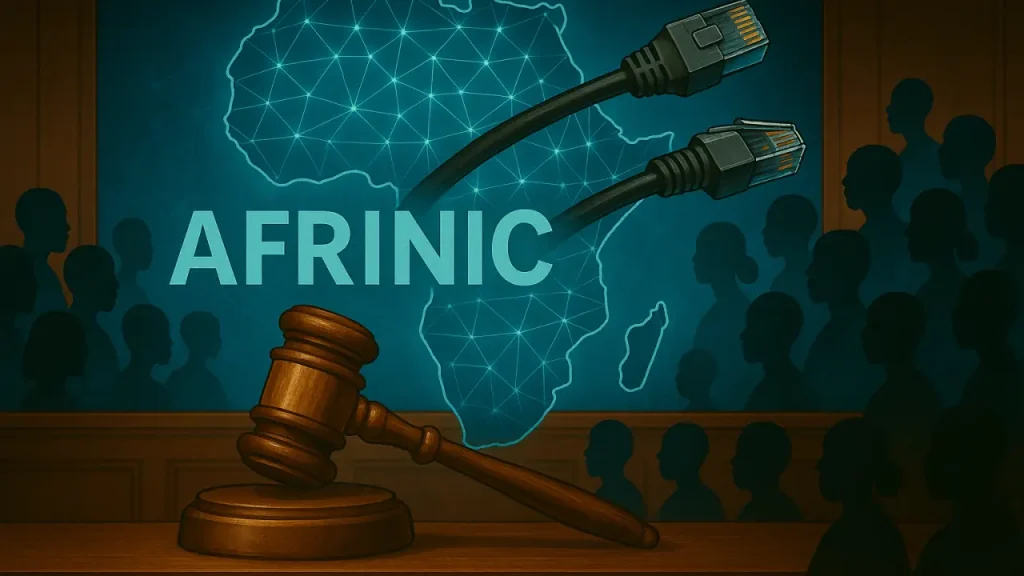- AFRINIC’s election cancellation and mismanagement have sparked trust issues and calls for immediate reforms.
- Cloud Innovation leads the charge for the dissolution of AFRINIC, urging the appointment of a new RIR to manage Africa’s IP resources.
AFRINIC’s election controversy deepens governance crisisned
AFRINIC, the sole registry responsible for managing Africa’s IP resources, has plunged deeper into a governance crisis. The recent annulment of its 2025 board election—over a single unverified proxy dispute—has sparked widespread criticism. The decision to discard valid votes has revealed a deep flaw in AFRINIC’s election standards, further eroding trust in its ability to manage Africa’s digital infrastructure.
The latest election controversy, which saw an entire process thrown out over what many see as a technicality, has highlighted the institution’s irreparable dysfunction. AFRINIC’s failure to conduct a transparent and democratic election has raised serious concerns about its future, with many questioning whether the organisation can still effectively oversee Africa’s internet resources.
As a result, Cloud Innovation Ltd., AFRINIC’s third-largest member, has taken decisive action. Cloud Innovation has formally called for the complete dissolution of AFRINIC, citing the registry’s “unworkable election standards” and its long-standing mismanagement. Cloud Innovation has made clear that it believes AFRINIC’s dissolution is the only path forward to restore integrity to the region’s internet governance.
Also read: AFRINIC claims ‘website not hacked’ amid election-period concerns
Also read: AFRINIC election: Voter fraud uncovered as ECom member threatens to resign
Cloud Innovation calls for AFRINIC’s dissolution and regional IP reform
The crisis at AFRINIC is not just a matter of internal dysfunction—it is a threat to Africa’s internet autonomy. With the continent’s digital infrastructure growing in importance, the need for competent and transparent governance has never been more urgent. Cloud Innovation’s call for the dissolution of AFRINIC is a direct challenge to the registry’s management, which has failed to uphold the trust of its members and the broader African internet community.
Adding to the tensions, ICANN, the global internet governance body, has been accused of attempting to undermine regional autonomy through its intervention in the AFRINIC crisis. Critics have claimed that ICANN is overreaching, with some suggesting that it aims to control the appointment of AFRINIC’s leadership. The “quiet power grab” by ICANN threatens Africa’s model of bottom-up internet governance and could centralise control over the continent’s internet resources, further undermining regional sovereignty.
As the crisis unfolds, the calls for a “necessary reset” of Africa’s internet governance system grow louder. The dissolution of AFRINIC is seen by many as the first step towards rebuilding trust and ensuring Africa’s digital future remains in the hands of its people. However, the future of the continent’s digital infrastructure now rests in the hands of the international community and the decision-makers who will shape its future governance.

